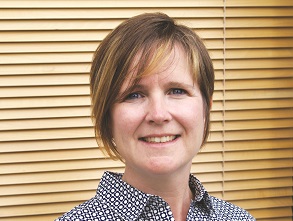More realism needed on financial targets after Q3 figures
NHS Improvement’s quarter three (Q3) performance report, published this week, revealed the provider sector has run up a deficit of £1,281m in the first nine months of the year. This is £365m above the plan for this point of a £916m deficit. At the end of December, the provider sector was forecasting a year-end deficit of £931m - £425m worse than plan and a deterioration of £308m compared with the forecast at Q2.
NHS Improvement said record demand for services and variation in performance across the sector had led to a decline in the sector’s finances. But despite more A&E attendances, a 5.9% increase in emergency admissions in December (compared with the same month in 2016) and the most significant flu season for six years, providers kept A&E performance steady at a national level compared to the previous year.
NHS Improvement chief executive Ian Dalton (pictured) said that more people were going to emergency departments ‘at a time when providers are already having to tighten their belts’. ‘Some providers appear to have managed the financial pressures better than others,’ he said. ‘We are working closely with those providers whose financial position has deteriorated seriously to ensure that they grip their problems while delivering the best possible care for their patients.'
Acknowledging it would be ‘unrealistic’ to assume demand was going to reverse, he called on health systems to ‘plan for capacity in future years that can meet the increasing levels of demand that we will continue to see’
Niall Dickson, chief executive of the NHS Confederation said the figures reflected ‘intolerable pressure’ on the NHS, highlighting the service’s ‘staggering 100,000 vacancies’. ‘We have repeatedly pointed to severe underfunding in health and care and a year-to-date deficit in the English NHS of £1,281 million is just the latest evidence of this,’ he said. ‘It is simply not realistic or reasonable to expect the NHS to go on delivering a comprehensive universal service with inexorably rising demand and demonstrably inadequate funding.’
‘We have lurched from Budget to Budget with one futile bail out after another,’ he added. ‘It is now time for the political class to wake up and tackle the long-term funding of both health and social care. Nothing less is acceptable.’
Richard Murray, director of policy for The King’s Fund, said the ‘alarming’ deficit raised ‘serious questions about how reasonable the financial targets were in the first place’.
‘While NHS Improvement is right to point to increases in demand for services as the reason for the financial difficulties, these are not pressures that have sprung up in the last few months and show no sign of abating,’ he said. ‘This underlines yet again that after the biggest funding squeeze in NHS history, the service does not have enough money or staff to do everything being asked of it.'
Saffron Cordery (pictured), NHS Providers director of policy and strategy, agreed that trust savings targets were too ambitious. This was compounded by trying to cope with demand that outstripped funding and serious ongoing workforce shortages.
While the service had shown ‘extraordinary resilience in sustaining performance’ during an unprecedented financial squeeze, she said it was now time for action.
A full review of winter performance was needed, she said, and the 2018/19 plan needed to reflect the final year-end position. There needed to be a ‘sensible dialogue’ about what could realistically be delivered in 2018/19 control totals. Trusts also needed support to address workforce shortages. She repeated the representative body’s call for a plan to address the long term funding of health and social care.
More details on the Q3 figures in the March issue of Healthcare Finance
Related content
We are excited to bring you a fun packed Eastern Branch Conference in 2025 over three days.
This event is for those that will benefit from an overview of costing in the NHS or those new to costing and will cover why we cost and the processes.